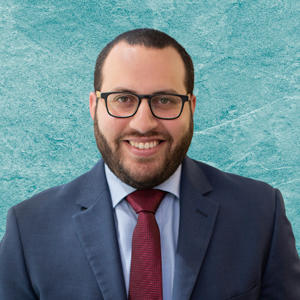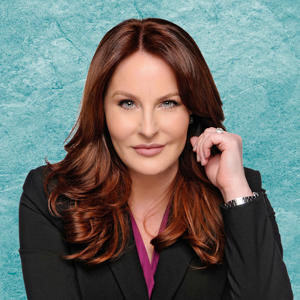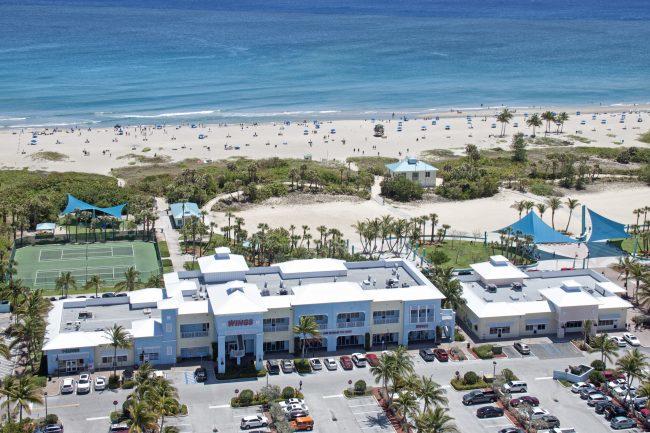South Florida retailers could be forgiven if they needed a minute to process the news that Gov. Ron DeSantis had moved the state into its third and final phase of reopening.
After months of mandated closures amid a stop-start economy, the late September announcement meant that in Miami-Dade County, bars and nightclubs could reopen for indoor activity. While it allowed for up to 100 percent capacity, the declaration still came with regional restrictions. It also came just two weeks after the county mayor, Carlos Gimenez, said he didn’t expect to reopen bars and nightclubs until a vaccine was available.

Omar Ali-Shamaa
Though the city of Miami allows unrestricted indoor dining — with tables spaced six feet apart — and does not require owners to submit a layout plan, a separate county order requires a plan to be filed.
It has been a chaotic seven months for retailers and landlords who have navigated a flurry of targeted orders and shutdowns. Some of those measures were aimed only at bars, others at restaurants, and some came from local authorities while others were handed down from the state and county levels.
“Being pulled back and forth, a lot of restaurants are now kind of timid,” said Omar Ali-Shamaa, a Miami attorney who represents restaurants, hotels and entertainment venues. “They’ve been through the ringer. They’re not rushing to make changes.” Ali-Shamaa, who is with Wolfe Pincavage, said the firm didn’t know if all its clients would reopen. Many restaurants also waited after the first reopening in May, when indoor dining was allowed at 25 percent, he said.
Marbet Lewis of Spiritus Law said her clients are “operating as if they could be shut down at any moment.” Lewis said the governor’s announcement to enter the third phase was necessary, but still radical.
“When the governor’s order first came out there was a lot of confusion and hesitation and fear,” she said.

Marbet Lewis, Spiritus Law
Adapt to survive
Over the last several months, landlords have had to weigh the same uncertainties. Some have sued to evict struggling tenants no longer able to pay, while others have allowed those businesses to walk away from leases. Retail space began flooding the market — adding to an oversupply that existed before the pandemic — as an increasing number of national chains began declaring bankruptcy.
Still, retail landlords say rent collections have bounced back, restaurants are expanding and new tenants are signing leases. Shops that have managed to sustain their business and pay their rent have adapted to the surge in demand for takeout, delivery and curbside service, brokers say.
Prospective tenants are now looking for off-site ghost kitchens, second-generation spaces with under 1,000 square feet, and additional outdoor seating space, brokers say. Many new leases being signed in South Florida now include “Covid clauses” — where base rent drops if restrictions are reimposed.
Felix Bendersky, restaurant broker and owner of F+B Hospitality, called it “incredible” how many out-of-state businesses are looking for space — especially in Miami Beach, where residential sales have soared.
“We are obviously in a recovery time and people are recovering faster than not,” Bendersky said.
Pop-up concepts that were successful in recent months are also trying their hand at longer, one- and two-year leases. Those include Old Greg’s Pizza, a pop-up that opened out of restaurateur Brad Kilgore’s Kaido space in the Miami Design District. It has developed a large following, selling out within minutes of opening time slots online. Now, it’s looking for a larger, permanent space.
Retail landlords are also reporting higher rent collection rates in South Florida, in line with the trend nationwide.
“People are signing leases again,” said Devlin Marinoff, broker and managing partner of Dwntwn Realty Advisors. He added that the days of forbearance and rent relief are over.
Retailers return
Shoppers are also returning to some of the larger retail spaces. Pebb Capital principal Todd Benson said the company is collecting nearly 100 percent of rent at Ocean Walk, a 67,000-square-foot beachfront retail center on Singer Island in Palm Beach County.
The investment firm was also able to get the city to close the street to traffic, allowing tenants to add more outdoor space. It also increased its advertising for Ocean Walk, which is at the entrance to the public beach.

An aerial view of Ocean Walk in Palm Beach County (Ander & Co)
Benson added that Pebb worked with its tenants to defer rent when possible at the start of the pandemic, and has stayed in touch with tenants over the ensuing months.
Still, Chris Stewart of Pebb Enterprises — a separate company from Pebb Capital — said many of its restaurant tenants have sales at or below 50 percent. Because of that, it has been offering those tenants reduced rents, based on their sales, for a certain period of time.
Stewart said he has also seen a “huge increase in retailer interest” over the past month and a half. That has come from restaurants, service retail, convenience stores, fast-food businesses and even boutique fitness concepts that are expanding.
Integra Investments, which owns Aventura ParkSquare, was able to sign new leases with four tenants to fill spaces that had been vacated in the last three months. At the mixed-use retail development in Aventura, Delicious Raw closed but Pura Vida, which has been expanding over the past year, took over the 2,000-square-foot space.
Many of the South Florida restaurants, bars and shops that didn’t get help from their landlords and had to close for good had problems before the pandemic, said Integra principal Victor Ballestas.
Being pulled back and forth, a lot of restaurants are now kind of timid
“Covid has accelerated the downfall of retail tenants that in the long run weren’t going to survive,” he said. Ballestas added that “instead of it happening in three years, it happened in three months.”
And despite freeing restaurants to open indoors, customers may be slow to fill those spaces. Dwntwn Realty Advisors co-founder Tony Arellano said tenants that remain most at-risk include fine dining establishments that depend on those large indoor areas.
Path to recovery
The South Florida retail market remains in recovery mode, said Tricera Capital’s Scott Sherman, who co-founded the investment firm with Ben Mandell.
“I would say today, no one knows what rent should be really anywhere across the board,” Sherman said. “Tourism isn’t back yet. There aren’t the bodies there used to be. People are still a little nervous.”
A few restaurant concepts such as Menin Hospitality’s Bodega Taqueria and Handcrafted Hospitality’s Tacocraft are expanding aggressively throughout South Florida. Menin plans to open 10 locations in the next two years, and Handcrafted is looking to add up to three Tacocraft locations per year.

Marc Falsetto of Tacocraft
Tacocraft owner Marc Falsetto said the group, which includes Anthony Bruno, Pat Marzano, Paul Castronova and Dan Marino, has tried a number of new ideas to attract customers during the pandemic, and is now on the hunt for more space. Their criteria for new locations has a Covid influence: 4,000 square feet with an outdoor area and enough parking for takeout and delivery service.
Falsetto is confident he’ll find those properties and at the right price. Landlords, he said, are “really looking to make a deal.” And he added, “everybody is more open.”
